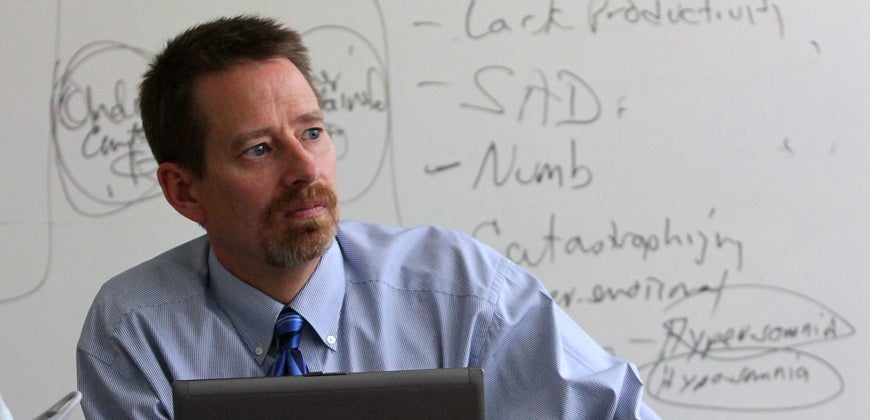Veterans turning to UCCS for help with combat-induced trauma

Veterans suffering from post-traumatic stress disorder, traumatic brain injury and other combat-induced injuries have a new place to turn. The Trauma, Health and Hazards Center at the University of Colorado Colorado Springs recently began assisting area vets and their families, and are a resource for trauma survivors across the region.
"We take a whole person integrated services approach," said program director Charles Benight, a professor in the Department of Psychology who founded the Trauma, Health and Hazards Center in 2001. "We also are utilizing a technology assisted approach, capitalizing on recent advances with Web support and smartphone apps."
The new center, made possible by a $2 million grant from Lyda Hill and housed in the new Lane Center for Academic Health Sciences, is helping fill a gap for high-need veteran populations.
“Around the Pikes Peak region, many people are working very hard to respond to the needs of returning soldiers and veterans. But the need is huge, and is taxing the available resources,” Benight said. “The grant is really a dream come true in terms of fulfilling my vision of empowering veterans.”
The grant also supports a new Veteran Health and Trauma track in UCCS’s Clinical Psychology Ph.D. program, to be among the first of its kind when it begins enrolling students in 2015. Benight leads the program.
With 18 percent of El Paso County residents having served in the military (compared with 13 percent nationally), UCCS is well positioned to increase mental-health research and clinical care for veterans. The clinic’s Lane Center home on North Nevada Avenue will emphasize evidence-based integrated care across health disciplines — enabling “one-stop shopping” for behavioral, rehabilitative and physical health care, and overcoming traditional barriers between providers. The center also is assisting vets without benefits through a scholarship system.
Under Benight’s leadership, the UCCS Trauma, Health and Hazards Center has forged a strong and collaborative research group, receiving more than $3.9 million in federal grant awards from such entities as the National Science Foundation, Department of Defense, and National Institute for Mental Health.




